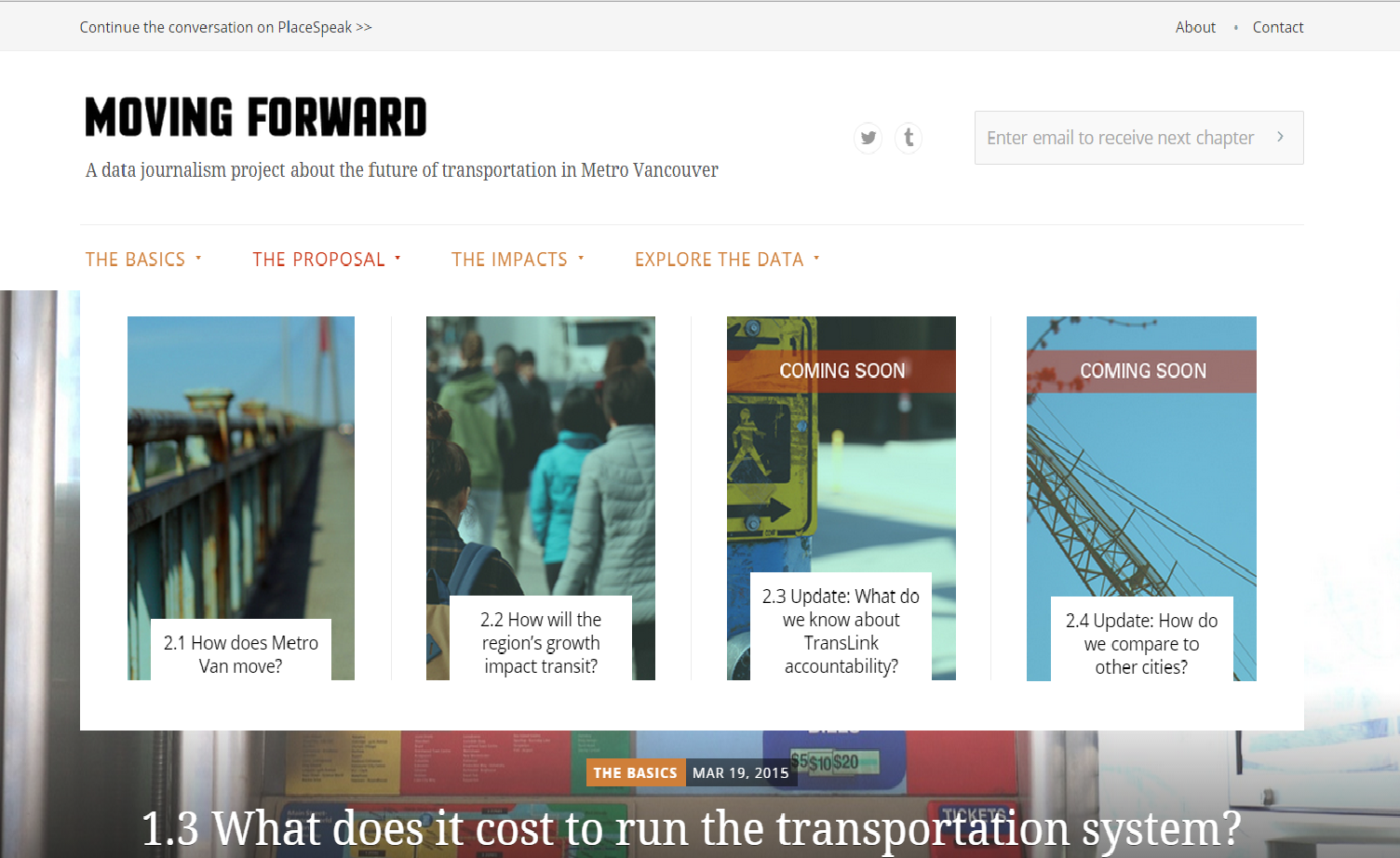Demonstrating Value Blog
 A project is currently underway in Quebec to design and disseminate tools that collective enterprises and social organizations can use to measure their economic and social impact. This project is bringing together researchers, enterprises, associations/ networks, and funders together to:
A project is currently underway in Quebec to design and disseminate tools that collective enterprises and social organizations can use to measure their economic and social impact. This project is bringing together researchers, enterprises, associations/ networks, and funders together to:
- Share knowledge and practices
- Define and test methods and indicators in variety of contexts
- Support enterprises who are seeking to evaluate their impact (through training)
The project began in Spring 2016 and is envisioned as a three year project. Since last summer, they have been developing a concept paper that will synthesize the current state of knowledge in this area...
Tools like Survey Monkey and Fluid Survey are low or no-cost, easy to use and accessible to anyone with e-mail. But this also means there are many more surveys out there as well as other competing demands on people’s attention. It is more important than ever, to design an effective survey that yields data that you can act on.
Here are some design tips to help:
1. Keep it simple. Use straight forward wording in the level of language used by the respondent. Also consider a simple design with limited graphics and fonts.
2. Be clear about your intentions. Respondents are more likely to help you if they see something of positive value for them. So take the time to set out why you are asking for this info; what you do with the data; how you will respect privacy and confidentiality.
...
 Vancity Community Foundation, a partner of Demonstrating Value, recently launched a 'societal cost calculator' to estimate how employing individuals who are marginalized could influence poverty-related outcomes and associated societal costs. It draws on empirical research about the links between employment and health and other societal outcomes and relates this to data that most social enterprises are tracking.
Vancity Community Foundation, a partner of Demonstrating Value, recently launched a 'societal cost calculator' to estimate how employing individuals who are marginalized could influence poverty-related outcomes and associated societal costs. It draws on empirical research about the links between employment and health and other societal outcomes and relates this to data that most social enterprises are tracking.
This calculator seeks to provide social enterprises with a straight forward means to make estimates of their impact based on data that they may typically gather. The results of the calculator may be useful to government and others in showing how social enterprises are connected to important social and economic policy objectives, and the general direction and magnitude of...
read more
We take a break from 'Demonstrating Value' to think about 'Creating Value', and specifically how we can create more value from our activities during the holiday season. Here are five ideas:
1. Increase your impact when you give
Social impact:
Look for opportunities to buy locally. Associations like LOCO that promote local businesses are springing up in many places and have great directories. Research shows that buying from an independent business has significant local economic impacts. Beyond buying locally, you may get more social impact by also buying:
- from social enterprises (see...

JustWork Economic Initiative is an inspiring organization in Vancouver that offers dignified, meaningful employment to people who face barriers to work in the traditional workforce. They operate three social enterprises: JustRenos, JustPottery and JustCatering. JustWork Executive Director, David Holcomb, recently told me about three measures, which they find to be very helpful in managing the social enterprises. With his permission, I share these with you. These are:
1. Ratio of wages paid to community employees compared to the overall enterprise deficit. This describes the fundraising needed in order for the enterprise to break-even. As David describes, “Another...
read more In 2012, Vancity Community Foundation (VCF) and the BC Association of Farmers Markets collaborated on the development of a Farmers Market Impact Toolkit that is available on the Demonstrating Value resource page. Over the past few years, the Farmers Market Coalition (FMC) in the United States has been embarking on its own measurement project, which builds on our project in many ways. DVRS’s Director and Program Manager of Evaluation at VCF, Bryn Sadownik, is currently serving as an advisor to their project - Indicators for Impact: Farmers Markets as Leaders in Collaborative Food System Data Collection – which they are conducing in collaboration with the University of Wisconsin-Madison.
In 2012, Vancity Community Foundation (VCF) and the BC Association of Farmers Markets collaborated on the development of a Farmers Market Impact Toolkit that is available on the Demonstrating Value resource page. Over the past few years, the Farmers Market Coalition (FMC) in the United States has been embarking on its own measurement project, which builds on our project in many ways. DVRS’s Director and Program Manager of Evaluation at VCF, Bryn Sadownik, is currently serving as an advisor to their project - Indicators for Impact: Farmers Markets as Leaders in Collaborative Food System Data Collection – which they are conducing in collaboration with the University of Wisconsin-Madison.
They recently finished the first...
Templates that can support data collection, analysis and reporting abound in many different formats and locations on websites. You can find these on sites that support community, small business and social enterprise developments, and as part of software tools like Google docs, Survey, Form Builder and Database Tools. Here is a small sampling of the range of templates that are out there that could be directly relevant to what you do. Following one link will bring you to many many more. Also check out DV related templates in our Tools and Resources page.
| Template | Description | Where | ...

This year's CESBCY Evaluation Conference will focus on evaluations of non-profit initiatives across the province and bring together both not-for-profit staff and evaluators who play a variety of roles within the world of non-profit evaluation. The theme, “Collaboration, Contribution and Collective Impact”, is a tribute to the role of evaluation in supporting system-wide improvement and social change. Conference participants will be engaged as active learners throughout the day, building a community of practice to support the ongoing evaluation of non-profit initiatives.
The conference programme will include many different approaches and tools like developmental evaluation and social return on investment, and feature many practical case studies. Look for a...
read moreIn our growing excitement about the power of Big Data, it easy to overlook the importance of using the ‘little data’ out there. These are the data that organizations already collect, but which may not be used to their full potential. Time spent summarizing, analyzing and using data is as important as collecting it! Here are five simple tips for getting more from your data:
1. Get into the practice of communicating quality and not quantity.
Communicating something briefly and meaningfully requires time to synthesize information and to think strategically. Data and other information are ultimately there to support decision-making, strategic directions and to engage others. It can be pulled together in ways that can create new insights. Nurture a culture in your team...
My vote is long since mailed in, but I am always on the look out for publications and tools that take complex data about impact and relates it to my own personal decisions. Here is a pretty amazing 'data journalism' project called Moving Forward, that explores the future of transportation in Metro Vancouver. Even if you do not live in his region, it is a pretty remarkable website with both excellent analysis and tools that can enable you to explore different facets of sustainable transportation. If you do live in the region, the website tools make it really easy to apply what you learn to your own situation. They also do this in some of the most beautiful data visualizations that I've seen!

It is produced by...
read more